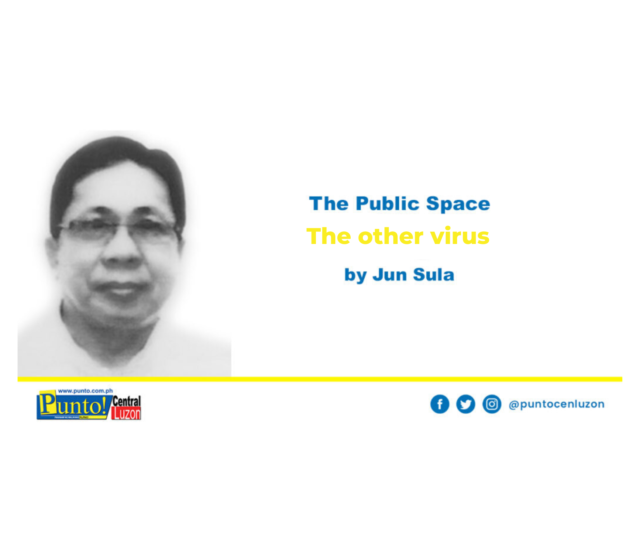About ten years ago, in an interview for a book project, the late Singapore prime minister Lee Kuan Yew came up with an interesting if unflattering characterization of Philippine leadership.
In a word, his description was the equivalent of being myopic.
On page 315 of the book Hard Truths, Lee bravely offered this honest and blunt perspective in relation to the South China sea.
“The Philippines have regretted closing down the Subic Bay American naval base. They are just short-term thinkers. Now it’s too late. They should never hav e closed the base, then they won’t have lost the South China sea islands under dispute. The American navy would be there helping the Filipino navy. If the Chinese navy engages the Filipino navy, the alliance will be invoked. But they’ve chased the Americans away.”
The American bases in the Philippines were terminated in a 12-11 vote of the Senate in 1991 during the term of former Corazon C. Aquino, who was apparently in favor of extending the base treaty for another 10 years.
Lee’s comment came, more or less, ten years after the Americans were kicked out of the country, on a nationalist principle of regaining our sovereignty.
Lee’s observation was both prescient and pragmatic in terms of the geopolitical dynamics involving the US and China.
Looking back, the slippery slope in the South China sea or West Philippine sea was already evident as early as when Lee made the unsavory comment about the kind of thinking our leaders had at the time.
Today, the South China sea debacle has become worse, with China gobbling up more and more territories in the highly disputed area while some of our leaders are either looking the other way or left trying to explain the incursion or transgression away.
And if the barometer of our thinking in terms of geopolitics is how we deal with the Americans, President Duterte’s termination of the remaining military agreement with the US, the Visiting Forces Agreement, doesn’t inspire confidence but engenders fear and anxiety about the future. On its face, it validates Lee’s insight.
In other parts of the book, Lee somewhat insinuated that strategic thinking requires high intelligence , especially exalting Singapore’s feat as a highly challenged nation in South East Asia. It’s a bragging right, of course, but a challenging one, especially with a better endowed country like the Philippines.
Where are we now? Let’s count the ways. Filipino fishermen continue to lose their livehood in the South China sea because of the menacing presence of the Chinese navy. A Filipino fishing boat was rammed by another Chinese fishing vessel.
A Philippine ship was visually threatened by a Chinese navy vessel by pointing a radar-activated gun toward it while on patrol in the South China sea.
Tons of drugs confiscated by law enforcers have traced their origin from China. POGOS are here, despite myriads of issues surrounding them from health to social costs– forget the nagging speculation that these are used as cover for espionage and accusation of non-tax payment. Some of our high officials act as if they’re China’s proxies in dealing with Taiwan. The list goes on ad infinitum.
In the late 60’s, the late famous broadcaster Johnny de Leon once suggested that the Philippines would , perhaps, be better off if it were led by leaders with low intelligence. In his word, bobo. During his time, two presidents were bar top notchers. As he saw it , it didn’t make a difference on two fronts, poverty and corruption.
Were he still alive today, he would probably revisit his thesis in view of current political and other realities in the country. And despair.
The English philosopher John Stuart Mills once said that the probability of electing leaders of low-grade intelligence is a constant danger in a representative or democratic government. During this pandemic scare, it appears the kind of intelligence leaders have is what made a difference, for good or for bad , in many countries around the world. And it seems, most of them are women. But that’s another story.
We’re less than three years from the next election of country’s leaders. There’s such a thing as lessons learned. Given our collective experience, past and present, difficult and troubling as they are, we have to revisit our way of exercising our right to vote with the end in view of choosing leaders with clear and broad vision for the future. Certainly, not a myopic one. We must equally step up to the plate.
Maybe there’s still time. The late Ninoy Aquino once said that a leader must not only be brilliant (probably referring to the late strongman Ferdinand Marcos) but must also have a heart (he was probably thinking of himself rather than his wife, Cory).
Ninoy reflected Mills philosophical theory in this respect. “The first element of good government, therefore , being the virtue (heart) and intelligence of the human beings composing the community, the most important of excellence which any form of government can possess is to promote the virtue and intelligence of the people themselves”, he said.
Marcos, echoing Plato, once acknowledged it’s a tough job equivalent to chosing a king – philosopher.
You’ll never know, we might beat the odds.





